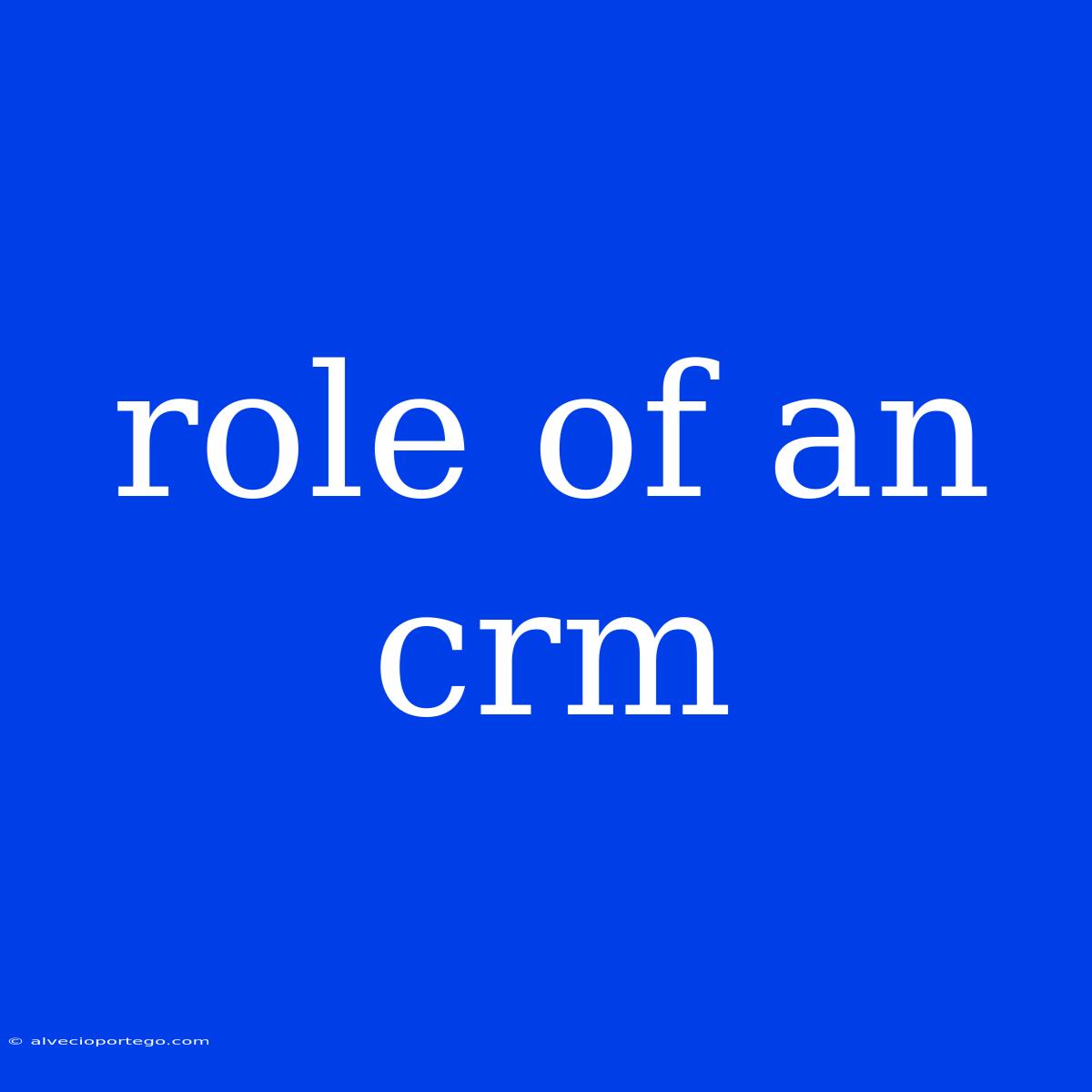The Essential Role of a CRM in Modern Business
In today's dynamic and competitive business landscape, maintaining strong customer relationships is no longer a luxury, but a necessity for survival and growth. This is where Customer Relationship Management (CRM) systems come into play, acting as the central nervous system for businesses to understand, nurture, and ultimately retain their customers.
What is CRM?
At its core, CRM is a technology for managing all your company's interactions with current and potential customers. It encompasses a suite of tools and strategies designed to streamline and optimize the customer journey, from the initial point of contact to long-term loyalty.
The Crucial Roles of CRM
Here are some key roles a CRM plays in the success of a modern business:
1. Centralized Customer Data:
- H3: A Single Source of Truth: CRM systems consolidate all customer data, from basic contact information to detailed purchase history and engagement metrics. This unified view eliminates data silos and provides a comprehensive understanding of each customer.
- H3: Data-Driven Decisions: With access to this centralized data, businesses can make informed decisions about marketing campaigns, sales strategies, and customer service interventions.
2. Enhanced Customer Engagement:
- H3: Personalized Communication: CRM enables personalized communication through targeted marketing campaigns, tailored product recommendations, and relevant customer service interactions. This fosters stronger connections and improves customer satisfaction.
- H3: Improved Customer Service: By tracking customer interactions and preferences, CRM empowers businesses to provide quicker, more efficient, and proactive customer support, resolving issues before they escalate.
3. Sales Automation and Optimization:
- H3: Streamlined Sales Processes: CRM automates repetitive tasks such as lead generation, qualification, and follow-ups, allowing sales teams to focus on high-value interactions and closing deals faster.
- H3: Accurate Sales Forecasting: CRM provides real-time insights into sales pipeline health, helping businesses forecast revenue accurately and make proactive adjustments to their sales strategy.
4. Marketing Automation and Efficiency:
- H3: Targeted Marketing Campaigns: CRM allows businesses to segment their customer base and deliver personalized marketing messages through email, social media, and other channels.
- H3: Improved ROI: By targeting the right audience with the right message, CRM helps businesses achieve higher conversion rates and optimize their marketing spend.
5. Measuring and Analyzing Performance:
- H3: Tracking Key Metrics: CRM offers robust reporting and analytics capabilities, allowing businesses to track key performance indicators (KPIs) like customer acquisition cost, customer lifetime value, and churn rate.
- H3: Continuous Improvement: By analyzing data and identifying areas for improvement, businesses can continuously refine their customer-centric strategies and drive better results.
Conclusion
In today's competitive market, businesses need a competitive edge. A robust CRM system is no longer a luxury, but a necessity. It empowers businesses to centralize customer data, enhance engagement, automate processes, measure performance, and ultimately build lasting customer relationships. By leveraging the power of CRM, businesses can create a sustainable advantage and achieve lasting success.

